Lit Fest and Boi Mela: A linguistic, cultural apartheid?

My occasional trips to the storied Ekushey Boi Mela have always been a special joy. In recent years, this has been augmented by the occasional opportunity to experience the charms of a relatively new kid on the block: the Dhaka Lit Fest (DLF).
Books are the lifeblood of a culture, and these two events provide telling insights into our cultural locus.
Take the Dhaka Lit Fest. Over the years, it has morphed – and has since dropped one of its international affiliations. It gives bibliophiles a great opportunity to meet internationally recognised authors in person. This year, I was excited to be able to listen to Amitav Ghosh and Nobel Laureate Abdulrazak Gurnah. The festival casts a wide net – actor Tilda Swinton, cricketer Gordon Greenidge or Australian master chef Kishwar Chowdhury aren't exactly famous authors – yet it offers a welcome window into world culture. I give the festival special credit for organising remarkably well-stocked bookstores, carrying many titles that are otherwise hard to get, of many of its featured international participants. This adds considerable cultural heft to the event that could have easily been limited to an ephemeral cultural jamboree – here now, forgotten tomorrow.
For all the plaudits that the DLF richly deserves, the basic concept of the festival is a bit troubling for me. Similar to its cultural cohorts in India, like the Jaipur Literature Festival and Apeejay Kolkata Literary Festival, the DLF, when you think about it, is a curious cultural confection. It's a literary festival where the main language of its readers takes a back seat.
To be sure, DLF has added Bangla panel discussions now, but it still appears to be an afterthought.
Then there is Ekushey Boi Mela. It's hard not to feel a surge of pride at the mammoth scale of the book fair. A closer look, however, reveals a less salubrious fact: the books on sale are a mixture of wheat and chaff – and there's a lot of chaff. As a passionate book-fair-goer for over half a century, I'm nostalgic for the book fair of several decades back. It was smallish, the handful of bookstalls fit comfortably in the Bangla Academy premises, and most publishers appeared to look upon their trade as a calling rather than a means of making a quick buck.
UPL's booklist remains solid: serious, thoughtful books on Bangladesh's history, politics and culture including an excellent list of Bangla translations. Prothoma, I'm pleased to see, has grown into an elegant publishing house with a wide, impressive list of Bangla titles with excellent production values.
This year, I found a few good publishing houses that rekindled my hopes of publishing in Bangladesh. There was my old favourite UPL; we go back half a century when I used to ride my bike to its Motijheel offices to grab a new title. UPL's booklist remains solid: serious, thoughtful books on Bangladesh's history, politics and culture including an excellent list of Bangla translations. Prothoma, I'm pleased to see, has grown into an elegant publishing house with a wide, impressive list of Bangla titles with excellent production values. A book, one must not forget, is an aesthetic artefact as well as a vehicle for thought. Chattogram-based Baatighar is another favourite publisher of mine.

My own impressions do not suggest massive book sales. I was heartened, however, to see some assiduous browsing. On the other hand, I was taken aback by what is a new phenomenon to an old-timer like me. I suppose you could call it the "book selfie." For the uninitiated, the reader – I use the term quite loosely – appears more pleased to have his/her photo taken with a book than actually owning (or presumably reading) it.
Both the Dhaka Lit Fest and Ekushey Boi Mela offer sobering insights into the underlying socioeconomic challenges that have hamstrung Bangla publishing.
The DLF offers stark evidence that the dissociation of a huge chunk of Dhaka's elite from Bangla is complete. This festival is a symptom rather than a cause. A section of today's youth are culturally illiterate in Bangla, which has resulted in a new educated elite whose first language is English. You can make the case that beyond this thin sliver of elite are the huge masses of Bangla readers. True enough, but for at least half a century, the economics of Bangla book publishing has been becoming more and more impossible. As the disposable income of the middle class – the main constituency of Bangla books – gets more and more squeezed, the price of paper and ancillary costs of publishing keep going up and up.
Today, Bangla publishing - and more broadly Bangla culture – confronts a linguistic cultural apartheid, while we need the exact opposite. Mass schooling should offer every high school student the tools to master the rudiments of English; English-medium schools should ensure students leave school with at least a high-school level command of Bangla.
It's not at all as improbable as it sounds. In fact, we lived through such a time. Ironically, it was during the days of the colonial British, that my father finished high school from Mymensingh Zilla School. His English teacher was a keen reader of Shakespeare. The upshot was that my father had a formidable command of both Bangla and English. We must not forget that Buddhadeva Bose taught English literature at Dhaka University – and poet Shamsur Rahman was his student. Both are titans in Bangla literature.
Proficiency in Bangla and English need not be mutually exclusive; there was a time when it was, for part of the intelligentsia, mutually inclusive. Not only for the sake of Bangla publishing, but for our overall cultural development, we need to find a way to reach that goal again.
Ashfaque Swapan is a writer and editor based in Atlanta, US.

 For all latest news, follow The Daily Star's Google News channel.
For all latest news, follow The Daily Star's Google News channel. 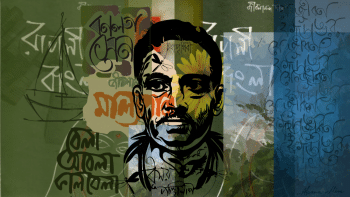
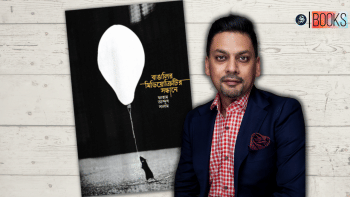



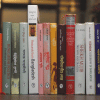

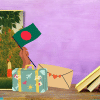
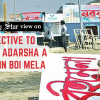


Comments